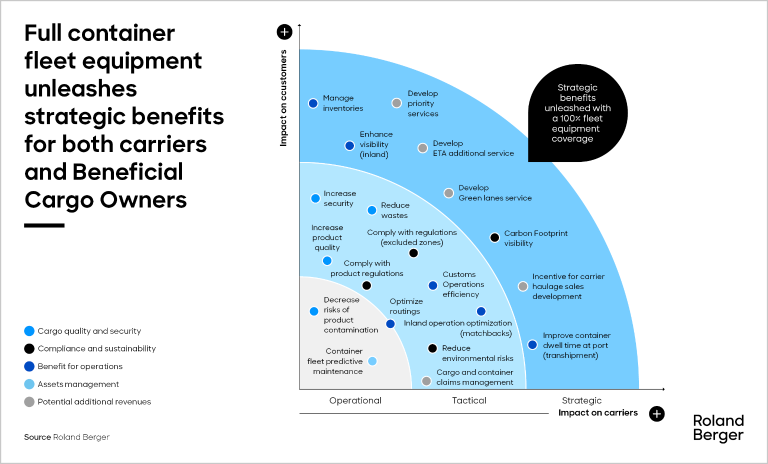By : Iyead (S) khalil
Smart containers are equipped with internet-enabled devices that collect and transmit data about the container’s location, temperature, humidity, and other conditions. This data is accessible to stakeholders in your supply chain via system integration, allowing more efficient tracking and management of cargo These containers play a pivotal role in saving time and effort, securing cargo, and protecting it
Refrigerated containers
While refrigerated containers – also known as reefer containers – have been around since the 1970s, smart containers have a more recent history. The development of IoT (Internet of Things) technology in the 2000s and 2010s meant that sensors could be fitted for the first time to shipping containers. This allowed them to provide real time data throughout a container journey. and container orientation, measure temperature, pressure, humidity and luminosity, establish the presence of volatile organic compound gases, and much more.
The Smart Container’s sensors
Where the data collected by the Smart Container’s sensors is transmitted to a central monitoring platform, called the Smart Container’s control tower, which provides a holistic perspective on the container and its contents, using additional information sources such as AIS (Automatic Identification System) data, as well as freight forwarders’ and other shipping partners’ data.

Advantages of Smart Containers
– *Automatic Data Capture*
Smart containers eliminate the need for manual data collection by autonomously capturing all relevant information, significantly reducing operational effort.
– *Cargo Quality Monitoring*
They provide real-time updates on cargo conditions, including temperature, humidity, and other critical parameters.
– *Accurate Arrival Predictions*
Remote sensing technology enables tracking of a container’s location, route, unexpected deviations, and even door openings/closures.
– *Data Security*
All collected data is securely protected.
*Impact of Smart Containers on the Supply Chain*
Shipping companies and investors can access supply chain data for any container. Smart container technology allows 24/7 data sharing between shipping companies and stakeholders, enhancing profitability through improved cargo safety and timely deliveries.
*Automation* simplifies tasks for ship crews by providing accessible information about each container. All containers are monitored via an internet network connecting the vessel to individual units.
A key advantage of smart containers is their role during *port unloading*. They deliver critical data to prevent errors during handover—unlike traditional containers, where errors often go undetected for extended periods.
Related :TT warns container seals are being ignored of cargo security

*How Are Smart Containers Used?*
*1. Senders and Recipients*
Traditional containers lack visibility into cargo quality, condition, or location during transit. Smart containers offer full transparency to buyers and sellers, enabling informed decision-making. Benefits include:
Improved transportation processes (packaging, loading, and security).
Prevention of emergencies like theft or quality degradation.
Enhanced service quality, including precise delivery timelines.
*2. Ship Crew*
Smart containers streamline crew responsibilities by simplifying monitoring of:
Temperature and humidity levels.
Container occupancy (empty/full status).
Refrigeration system functionality.
This reduces crew workload and minimizes the risk of human error.

*3. Container Owners*
Owners can track container locations, arrival times, operational status, and any issues encountered to optimize performance.
*4. Warehouse Workers*
They gain precise data on inventory quantities, cargo conditions, arrival/departure schedules, and shipment statuses—all streamlined through smart containers.
*5. Port Authorities*
Port officials can secure infrastructure (roads, bridges, warehouses) and schedule maintenance using real-time data on container arrivals.
Related : DP World and SAILGP announce global smart logistics partnership

The global fleet of smart containers
The global fleet of smart containers continues to expand, providing transport and logistics operators and their customers the exact location of containers at all times and ensure that quality standards are being met during transport. This in turn enables any necessary mitigation to be undertaken proactively to minimise the risk of damage or delay. Shipping cargo in standard containers will no doubt continue for many years, but it will eventually start to look like the less smart option.accorging to TT club





